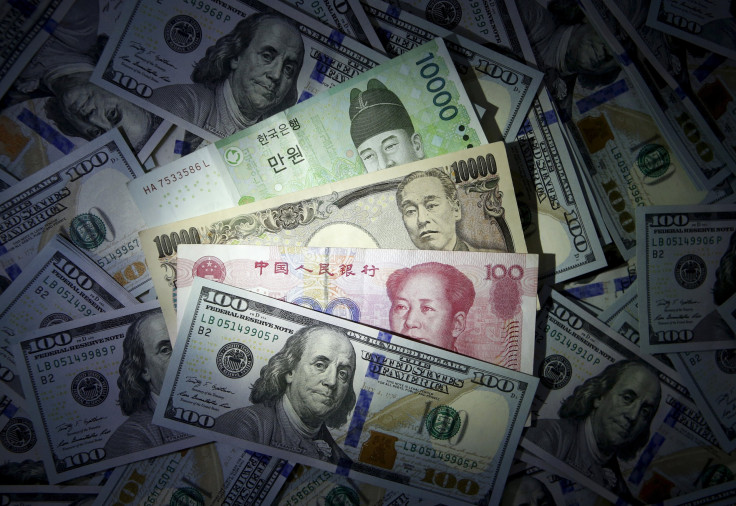China’s Foreign Exchange Reserves Rise For Second Straight Month As Capital Outflow Concerns Ease

China’s foreign exchange reserves rose for the second-straight month in April as the People’s Bank of China (PBoC) continued to scale back its intervention in the currency markets.
In April, China’s forex reserves — the world’s largest — rose by $7.09 billion over the previous month to $3.22 trillion. This compares to a Reuters poll that had forecast a figure of $3.20 trillion.
Although China's forex reserves have dropped steadily over the past two years, this decline is now showing signs of moderating as the yuan strengthens and capital outflow fears ease.
In 2015, when China’s capital outflows stood at a staggering $1 trillion, its forex reserves dropped by $513 billion to $3.33 trillion — marking the first annual drop since 1992. Earlier this year, the central bank stepped up controls to ease outflow pressures, before loosening some of the restrictions in February.
“The flip side is if we see the dollar strengthen again later this year in anticipation of a Fed rate hike, capital outflows could return,” Larry Hu, head of China economics at Macquarie Securities Ltd. in Hong Kong, told Bloomberg last month when China reported that its forex reserves had risen in April. “This year will be very choppy,” Hu added.
The U.S. Federal Reserve is yet to rule out a rate hike in June. However, according to a Reuters survey conducted Friday, Wall Street bankers now expect the central bank to refrain from raising its key rates in June after fresh data showed that jobs growth in the country faltered in April. The U.S. economy added 160,000 jobs last month, the weakest gain since September.
“This report did very little to make the case for a June rate hike,” Gennadiy Goldberg, an interest rate strategist at TD Securities in New York, told Reuters. “The data today really underscores our view that the Fed will want to see more data before hiking rates further.”
If the U.S. Fed tempers expectations of a June rate hike, it could weaken the dollar further and reduce the downward pressure on the yuan. A weak dollar would also raise the value of PBoC’s euro- and yen-dominated assets.
© Copyright IBTimes 2025. All rights reserved.






















